Selling tea must be very difficult. English people, despite the stereotype, know almost nothing about tea, and are happy to drink Earl Grey, sticky-toffee-pudding tea from Whittards, and all of the usual fannings-in-teabags. Those vendors that have had a go at cracking the mainstream UK market do so by likening their produce to wine, which is something that we know a (very) little more about. Hence, you see lots of glistening-white websites, with high prices, describing their products as "premier cru" tea, etc. etc.
The alternative to the mainstream market is to sell to enthusiasts (you and me), but this must be even harder, because we tend to reject the high prices from the mainstream sellers. We can, after all, get great tea at a decent price from Yunnan Sourcing, Essence of Tea, Taobao, China Chadao, Red Lantern, and their ilk.
Canton Tea used to fall into the first category, and the previous pu'ercha from them that I have sampled was a highly processed 2004 CNNP cake (in the style of modern Xiaguan productions) that was sold at an immodest £78. However, the company has taken a healthy change of direction (in terms of its pu'ercha), and sells this hand-made Yiwu cake for £35, which is much more like it.
As shown above and below, this is possibly the first cake that I have ever seen which is aimed exclusively at laowai [dirty foreign mongrels], such as you and me.
(Its name in English is simply "Yiwu Moutain Big-Tree Tea".)
(Its name in English is simply "Yiwu Moutain Big-Tree Tea".)
I don't remember the last time that I saw real English on a neipiao. Where is our beloved text describing it as a panacea?!
In fact, the only error I can see is in the Chinese: "Meng Hai Hai".
OK, perhaps the grammar could use a minor tweak, but that's just the pedantic tutor in me speaking.
In fact, the only error I can see is in the Chinese: "Meng Hai Hai".
OK, perhaps the grammar could use a minor tweak, but that's just the pedantic tutor in me speaking.
You may not be able to tell from the scaling in the photographs, but this is a xiaobing, weighing 250g. Therefore we must multiply the price by a factor of 1.5 in order to obtain the "bing equivalent" price, which would of course be £52.50 / 375g in this case. This makes it approximately as expensive as the very best (vendor-made) cakes from Essence of Tea and Yunnan Sourcing, which is useful as a comparison.
The leaves are whole and furry; immediately, we may assume that this is markedly different in quality from the previous CNNP cakes. The little cake has the fresh, sweet scent of good Yiwu. Allegedly, Seb and Jing of the ever-excellent Jing Teashop (not to be confused with London-based "Jing Tea") were involved in the production of this cake, which gives me confidence.
The soup is so blissfully yellow that it tends towards green hints. Its aroma in the wenxiangbei [aroma cup] is reassuringly stable and heavy. I am relieved to find that its character in the mouth is similarly accomplished. The complex background of decent wild honey combines with a good, clean kuwei [bitter flavour] in the finish, which reminds me of other good Yiwu cakes.
It is honest, open, and quite potent. Good stuff.
Unexpectedly, and quite happily, the leaves develop a satisfying character of Chinese medicine in later infusions, which reminds me of some of the best hand-made, laoshu [old tree] Yiwu cakes. "Decent - very good", notes Lei, as she takes a cup in passing.
The medicinal intensity increases in later infusions, yet always stays within the bounds of sweet Yiwu.
After a large number of infusions, the leaves remain full, clean, and quite charming. A good blend has been used here, which balances a range of flavours with the need to have a common, underlying direction in the blend, such that it doesn't run out of steam. It's not easy to blend tea, and this cake is a satisfying example.
If future cakes from Canton Tea turn out to retain this level of quality, we may be seeing a new name added to our annual sources of good, hand-made tea. This Yiwu is priced more-or-less properly (I'm feeling a bit biased towards lower Chinese prices after still being in Maliandao mode), and is definitely worth a go. See if you agree with me.

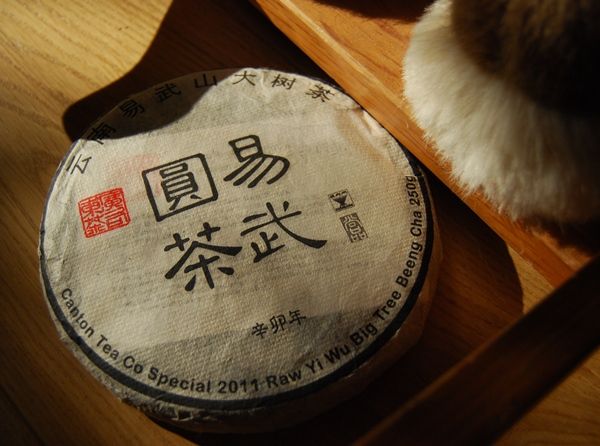
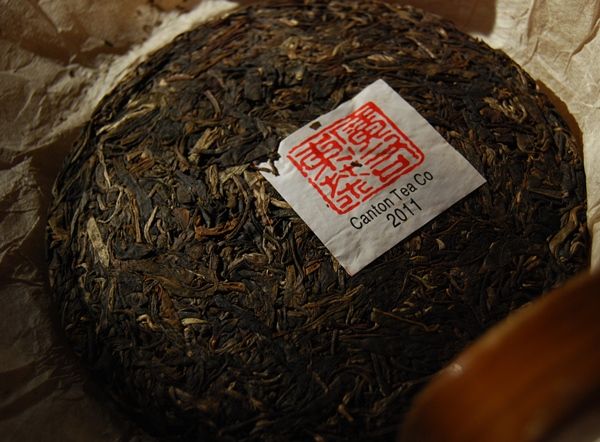
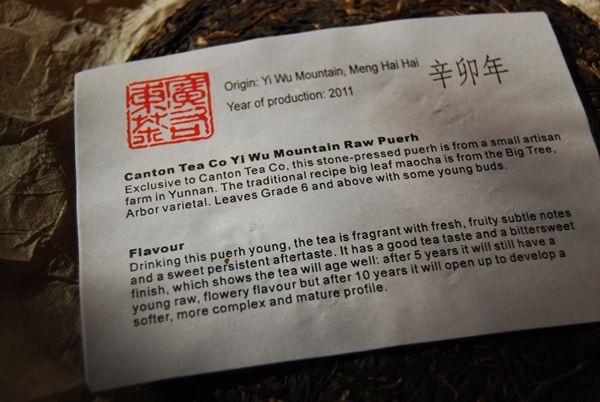
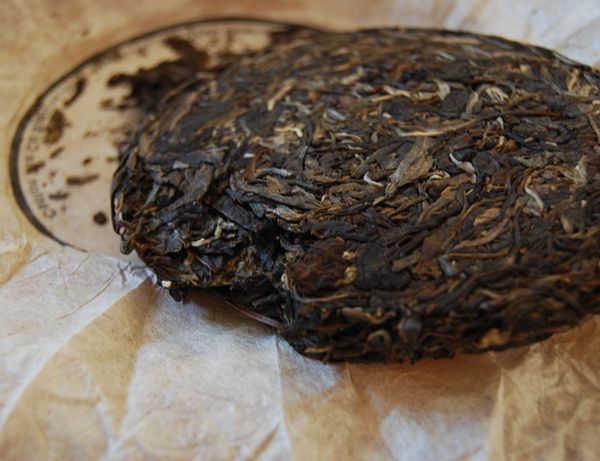
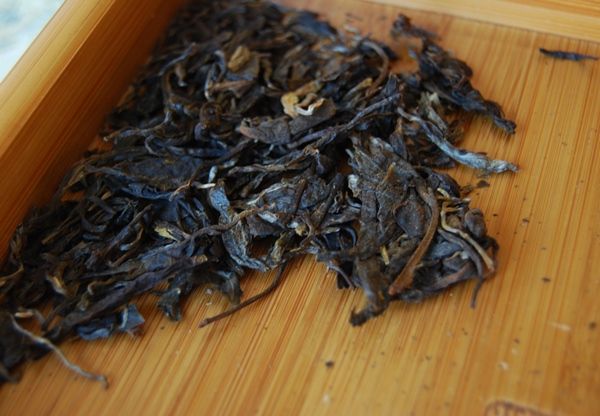
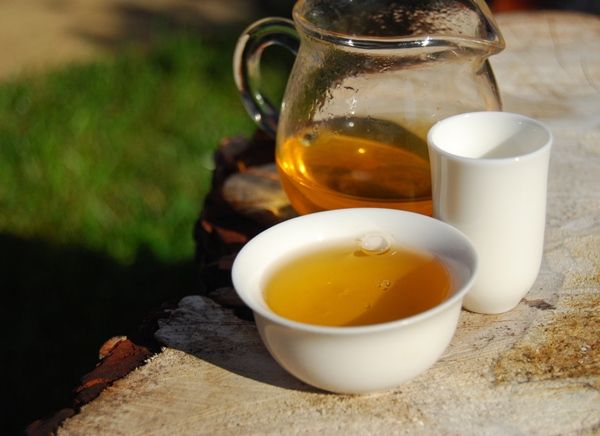
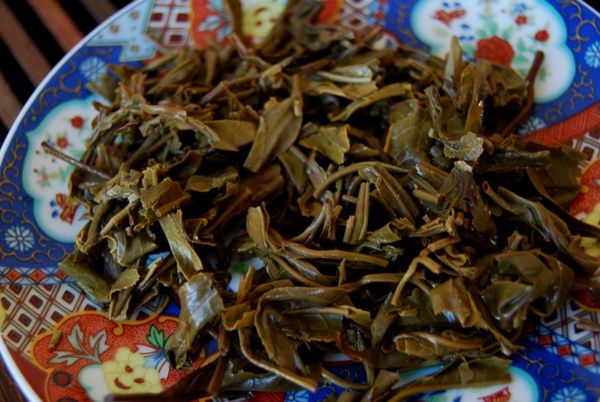
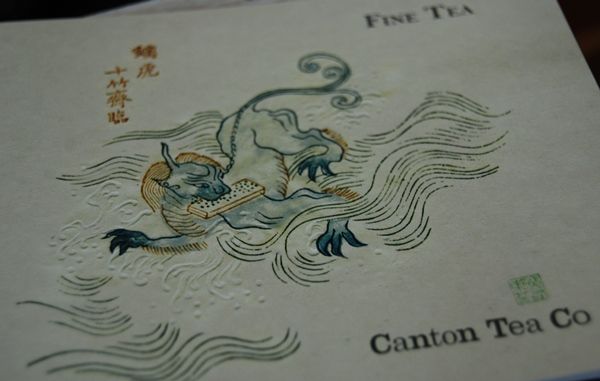
6 comments:
Great, I'm glad you got ahold of this one--I was thinking about trying to send you a sample for your opinion but have been caught up doing too many things. Canton shared a cake with me to review for their blog and I was really surprised with the quality, especially compared to the other 2011 productions I've tried. I thought this tea had similar purity but more depth in later infusions than most of the Essence of Tea productions I tried this year, and that's certainly saying something. Any thoughts on how well the tea represents Yiwu terroir? Certainly not my speciality...
Glad you got to have some of this one,
Elliot
Well, then, we need another face-off between two miiiiiiigggghhty Yiwus!
Who's the one with the reliable jab? The Nadacha Guafengzhai?
Or will the stiff uppercut and sheer absorbing mass allow Canton Tea Yiwu Gushu to wade in and knock the punk out?
--shah8
Dear Elliot,
Yiwu is a big place, in terms of character! This is not obviously any one mountain that I could identify, but its medicinal charm is believably Yiwu. It represents a good blend.
Shah - I feel that the Essence of Tea Guafengzhai is a more classical, accomplished cake, but that is not demean the considerable charms of the Canton blend.
Toodlepip,
Hobbes
Hey Hobbes:
As I’m pretty sure you’ll remember, We are “laowai”, not “laowei”.
Schoolmarmishly yours, Lew
OK, OK, I can see I’ve punished myself for the sin of snottiness by committing a flagrant mis-capitalization for all to see.
Sheepishly yours, Lew
Thanks, Lew!
I'd just been writing about Kullback-Leibler divergance, and the vowel sound stuck in my head. :)
I've got my own Guang-style transliteration when that happens...
Toodlepip,
Hobbes
Post a Comment